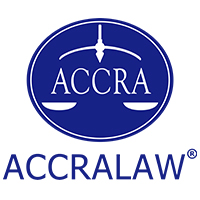Taxes are integral to any economic policy. Investments flow in and out of the economy based on fiscal incentives, as much as human capital. For the locators at the Philippine Economic Zone Authority (PEZA), investors were enticed to invest in the Philippines with tax incentives such as an income tax holiday (ITH) or 5% gross income taxation (GIT), value-added tax (VAT) zero-rated purchases, and duty-free importations. However, with major tax reforms introduced and proposed by the government, PEZA locators are facing a new business paradigm requiring pro-activeness.
With Republic Act No. 10963, or the Tax Reform for Acceleration and Inclusion (TRAIN), purchases by PEZA locators (i.e., those registered and operating within the PEZA zones, which are considered as separate customs territories) were expressly recognized as VAT zero-rated. However, the provision was vetoed by the Philippine president.

Senior associate
ACCRALAW
This change in the VAT treatment of purchases by PEZA locators, from 0% to 12%, created noise among PEZA locators. To appease the investors, PEZA immediately issued Memorandum Circular No. 2018-003, providing that “the [Department of Finance] informed [PEZA] that the TRAIN law does not affect the current zero rating of sales of goods and services to PEZA locators…” Thus, purchases by PEZA locators remain at 0% VAT.
The status quo, however, may just be a respite. Under the TRAIN, ultimately, only direct exporters shall be entitled to VAT zero-rated sales. This means that suppliers of direct exporters, being merely indirect exporters themselves, shall not be entitled to VAT zero-rated sales, but subject to 12% VAT. This shall be, upon the successful establishment and implementation of an enhanced VAT refund system to be determined by the Department of Finance (DOF), based on the success of the refund system by 31 December 2019.
As such, by 2020, if the DOF determines the refund system to be successful, purchases by PEZA locators may be subject to 12% VAT. When it happens, PEZA locators have two options – they may either treat the 12% VAT as part of their cost, or claim for a refund. The 12% input VAT passed on to the PEZA locators is qualified for a refund provided these are in relation to the PEZA locator’s exports (of either goods and services), which are paid for in foreign currency.
Another major shift for PEZA locators will be as introduced by the Corporate Income Tax and Incentives Rationalization Act (CITIRA), when passed into law. Under the CITIRA, PEZA locators will lose their: ITH and 5% GIT status over the course of five years; exemption from the 15% branch profits remittance tax; exemption from local business tax; and exemption from 10% improperly accumulated earnings tax. After full implementation of the TRAIN and CITIRA, PEZA locators will be no different from other regular corporations (except with respect to their qualified duty-free importations, which are not expressly touched upon in the TRAIN and CITIRA).
Hence, the question, is there still any economic benefit to being a PEZA locator? And more importantly, how should a PEZA locator prepare for these changes?
It seems there are no more significant tax benefits to being a PEZA locator, except with respect to its qualified duty-free importations. While the answer is negative to the first question, the answer to the second is hopeful, with some proactiveness.
With respect to the 12% VAT on its purchases upon full implementation of the TRAIN, PEZA locators should already prepare their processes for VAT refund applications. They should make sure their suppliers provide all the necessary information (including proper name of the PEZA locator, its TIN, the VAT breakdown, etc.) in the VAT invoices and official receipts.
With respect to removal of the incentives under the CITIRA, PEZA locators may opt to cancel their PEZA registration and apply for registration under the Strategic Investment Priority Plan (SIPP) with the Fiscal Incentives Review Board. SIPP-qualified entities shall be entitled to: ITH for two to six years, depending on location; reduced corporate income tax rate after its ITH, and in lieu of local business tax; duty-free importation on capital equipment and raw materials directly and exclusively used for its registered activity; if at least 90% of sales are export sales, its purchases shall be VAT zero-rated; and enhanced deduction for capital assets and labour. As such, PEZA locators qualified for SIPP have a lot of fiscal incentives still going for them, as long as they are aligned with the government’s investment policy.
While the business outlook for PEZA locators may seem tough, truly tough businesses know how to make good of the bad. Nothing is perpetually stable in business. It should be business as usual, but with heaps of foresight.
Karen Andrea D Torres is a senior associate with the tax department at ACCRALAW

22nd Floor, ACCRALAW Tower, 2nd Avenue corner
30th Street, Crescent Park West, Bonifacio Global City,
1635 Taguig, Metro Manila, Philippines
www.accralaw.com
Contact details:
Tel: +63 2 8830 8000


























